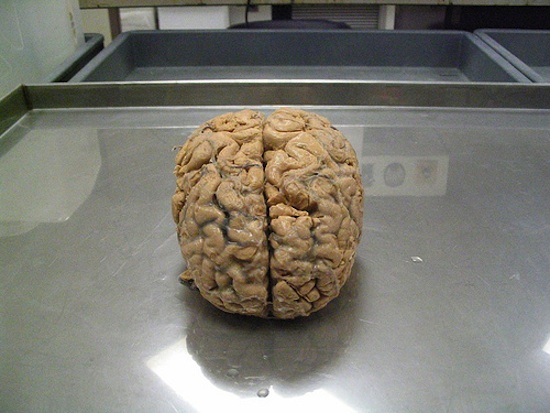Gene For Dementia Risk Might Make Carriers More Clever During Youth
In news that makes us glad our memories are, as a team, pretty terrible, a team of researchers led by the University of Sussex has found evidence suggesting that a gene variant associated with dementia late in life is also associated with improved memory, math skills, and verbal abilities earlier in life. It’s a troubling reminder that, sometimes, the candle that burns twice as bright really may burn half as long.
University of Sussex neuroscientists used MRI testing to examine the cognitive skills and brain activity of young people with the e4 variant gene, which has long been associated with the onset of Alzheimer’s disease later in life. They found evidence that young folks who carried the gene, which is estimated to be found in about 25% of the population worldwide, performed better in attention and memory tests than those with the standard version of the gene. They also found that that increased performance is correlated with subtle differences in how the brain functions during those tests, showing more activity in the white matter that transmits APOE e4.
Lead researcher Professor Jennifer Rusted said:
The suggestion is that while this confers cognitive advantages in early life, leading to higher achievement, it may also increase susceptibility to memory failure as we enter old age.
Researchers suspect that the e4 variant might essentially make the brain run hotter during youth, which could account for the better cognitive performance demonstrated by the subjects in these tests. Like an engine running hotter, though, the increased performance could lead to a swifter overall deterioration of the parts. Rusted and her colleagues are hopeful that this new evidence could lead to new ways to treat Alzheimer’s in folks who carry the e4 gene, and perhaps even pave the way for therapies that stop the burnout before it starts.
(via Medical Xpress)
- Transfusions of young blood can improve cognitive function, too
- While transfusions of fat — like cheeseburgers — can shrink your brain
- Science has just started to pinpoint the plumbing system in mammalian brains
Have a tip we should know? [email protected]
